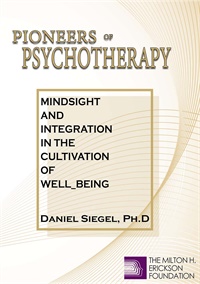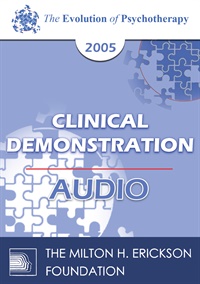- Average Rating:
- Not yet rated
- Topic Areas:
- Couples Therapy | Keynotes | Psychobiological Approach to Couples Therapy (PACT) | Neurobiology | Relationships
- Categories:
- Couples Conference | Couples Conference 2016
- Faculty:
- Stan Tatkin, PsyD, MFT
- Course Levels:
- Master Degree or Higher in Health-Related Field
- Duration:
- 51:04
- Format:
- Audio and Video
- Original Program Date:
- May 13, 2016
- Short Description:
- This one-hour presentation will demonstrate cross-dialogic and other strategic techniques for shepherding couples toward secure functioning, an attitudinal and behavioral expectation that couples operate as a two-person psychological system. Because the concept of secure-functioning is principle based and not personality based, the success of secure-functioning relationships does not depend upon attachment orientation. The presentation will endeavor to help the clinician utilize psychobiological strategies to help clarify partner attachment strategies, true desires, and unspoken agendas in couple therapy.
- Price:
-
Sale is $29.00
price reduced from Base Price - $59.00

- Average Rating:
- Not yet rated
- Topic Areas:
- Addiction | Deception | Keynotes | Psychobiological Approach to Couples Therapy (PACT) | Affairs | Abuse | Neurobiology | Couples Therapy
- Categories:
- Couples Conference | Couples Conference 2017
- Faculty:
- Stan Tatkin, PsyD, MFT
- Course Levels:
- Master Degree or Higher in Health-Related Field
- Duration:
- 55:09
- Format:
- Audio and Video
- Original Program Date:
- Apr 01, 2017
- Short Description:
- Of all the challenges to the couple therapist the most common is the matter of the affairs, addictions, and deception. In this one- hour presentation, attendees will learn various methods of detecting cheating, lying, and substance and non-substance abuse very early in the process of couple therapy. We will be looking at these behaviors from both psychobiological and neurobiological perspectives.
- Price:
-
Sale is $29.00
price reduced from Base Price - $59.00

- Average Rating:
- Not yet rated
- Topic Areas:
- Couples Therapy | Trauma | Keynotes | Intimacy | Attachment | Neurobiology | Relationships
- Bundle(s):
- Learning Track - Turn Down the Trauma
- Categories:
- Couples Conference | Couples Conference 2017
- Faculty:
- Janina Fisher, PhD
- Course Levels:
- Master Degree or Higher in Health-Related Field
- Duration:
- 54:20
- Format:
- Audio and Video
- Original Program Date:
- Apr 02, 2017
- Short Description:
- Early childhood trauma has lasting and dramatic effects on attachment formation and on the later capacity for intimacy and mutuality. Instead of experiencing relationships as a haven of safety, traumatized couples are driven by powerful wishes for and fears of closeness. By using somatic and mindfulness-based interventions, conflictual patterns are disrupted, allowing couples to address the intense responses and impulsive reactions that undermine all sense of safety and hope and recreate the experience of threat in the body and in the relationship.
- Price:
-
Sale is $29.00
price reduced from Base Price - $59.00

- Average Rating:
- Not yet rated
- Topic Areas:
- Couples Therapy | Trauma | Keynotes | Intimacy | Attachment | Neurobiology | Relationships
- Categories:
- Couples Conference | Couples Conference 2017
- Faculty:
- Janina Fisher, PhD
- Duration:
- 54:20
- Format:
- Audio Only
- Original Program Date:
- Apr 02, 2017
- Short Description:
- Early childhood trauma has lasting and dramatic effects on attachment formation and on the later capacity for intimacy and mutuality. Instead of experiencing relationships as a haven of safety, traumatized couples are driven by powerful wishes for and fears of closeness. By using somatic and mindfulness-based interventions, conflictual patterns are disrupted, allowing couples to address the intense responses and impulsive reactions that undermine all sense of safety and hope and recreate the experience of threat in the body and in the relationship.
- Price:
- $15.00 - Base Price
Credit available - Click Here for more information
- Average Rating:
- Not yet rated
- Topic Areas:
- Addiction | Couples Therapy | Workshops | Continuing Education | Love | Neurobiology | Neuroscience
- Categories:
- Couples Conference | Couples Conference 2018 | Online Continuing Education
- Faculty:
- Helen E. Fisher, PhD
- Course Levels:
- Master Degree or Higher in Health-Related Field
- Duration:
- 1:57:48
- Format:
- Audio and Video
- Original Program Date:
- May 04, 2018
- Short Description:
- Biological Anthropologist Helen Fisher discusses four broad basic styles of thinking and behaving associated with four primary brain systems: the dopamine, serotonin, and testosterone and estrogen/oxytocin systems. She discusses why people are predisposed to love one person rather than another (mate choice). She hypothesizes that individuals who primarily express of the constellation of traits linked with each of these brain systems may be predisposed to different forms of love addiction, includ
- Price:
-
Sale is $29.00
price reduced from Base Price - $59.00

- Average Rating:
- Not yet rated
- Topic Areas:
- Clinical Demonstrations | Psychotherapy | Relationships | Mindfulness | Neurobiology
- Bundle(s):
- Pioneers of Psychotherapy Bundle
- Categories:
- Pioneers of Psychotherapy | Evolution of Psychotherapy | Evolution of Psychotherapy 2009
- Faculty:
- Daniel Siegel, MD
- Course Levels:
- Master Degree or Higher in Health-Related Field
- Duration:
- 00:56:00
- Format:
- Audio and Video
- Original Program Date:
- Dec 10, 2009
- Short Description:
- Daniel Siegel (2009) Mindsight and Integration in the Cultivation of Well-Being demonstrates interpersonal neurobiology therapy with a volunteer studying to be a therapist. She has experienced fear in one clinical setting and has also been “the glue,” holding together her family since she was young. Siegel uses the triangle of relationship/ mind/brain to help the volunteer experience her fear of responsibility by allowing images and body sensations to flow to “soften the mind.”
- Price:
- $59.00 - Base Price

- Average Rating:
- Not yet rated
- Topic Areas:
- Ericksonian Psychotherapy | Psychotherapy | Invited Addresses | Neurobiology | Neuroscience
- Categories:
- Evolution of Psychotherapy | Evolution of Psychotherapy 2000
- Faculty:
- Ernest Rossi, PhD | Thomas Szasz, MD
- Duration:
- 1 Hour 25 Minutes
- Format:
- Audio Only
- Original Program Date:
- May 28, 2000
- Short Description:
- Current research on neurogenesis (growth of new brain cells) indicates that novelty, environmental enrichment and physical exercise can facilitate new growth in the adult human brain. How can we optimize our Ericksonian approaches to support the psychobiological growth process?
- Price:
- $15.00 - Base Price

- Average Rating:
- Not yet rated
- Topic Areas:
- Clinical Demonstrations | Neurobiology | Psychotherapy | Neuroscience
- Categories:
- Evolution of Psychotherapy | Evolution of Psychotherapy 2005
- Faculty:
- Daniel Siegel, MD
- Duration:
- 1 Hour 1 Minutes
- Format:
- Audio Only
- Original Program Date:
- Dec 10, 2005
- Short Description:
- Educational Objectives: To name four basic principles of interpersonal neurobiology in relation to the process of psychotherapy. To describe the ways in which the therapeutic relationship shapes brain function in the present, helps loosen old neural maps, and "snags" the brain in order to promote neural activation and growth in very targeted ways.
- Price:
- $15.00 - Base Price
- Average Rating:
- Not yet rated
- Topic Areas:
- Dialogues | Neurobiology | Neuroscience | Psychotherapy
- Categories:
- Evolution of Psychotherapy | Evolution of Psychotherapy 2005
- Faculty:
- Ernest Rossi, PhD | Daniel Siegel, MD
- Course Levels:
- Master Degree or Higher in Health-Related Field
- Duration:
- 59:36
- Format:
- Audio and Video
- Original Program Date:
- Dec 10, 2005
- Short Description:
- Dialogue 10 from the Evolution of Psychotherapy 2005 - The Psychobiology of Change Featuring Ernest Rossi, PHD, and Daniel Siegel, MD
- Price:
-
Sale is $29.00
price reduced from Base Price - $59.00

- Average Rating:
- Not yet rated
- Topic Areas:
- Point/Counterpoint Sessions | Neurobiology | Object Relations Theory | Psychotherapy | Attachment | History of Psychotherapy
- Categories:
- Evolution of Psychotherapy | Evolution of Psychotherapy 2005
- Faculty:
- James F. Masterson, MD | Erving Polster, PhD
- Duration:
- 1 Hour 18 Minutes
- Format:
- Audio Only
- Original Program Date:
- Dec 10, 2005
- Short Description:
- This talk first briefly reviews the history of the Developmental, Self and Object Relations theoretical approach to the personality disorders as a preface to exploring the latest additions to the theory, i.e., Attachment Theory and Neurobiological Development of the Self in the Right Brain. Attachment Theory: The work of Ainsworth and others is described leading to the attachment categories in the infant and the adult. Many follow-up studies are presented validating the persistence of the categories over time. Neurobiologic Development of the Self in the Right Brain: The work of Alan Schore, Ph.D. is used to describe the development of the self in the right prefrontal cortex of the brain. Integration: The integration of the two theories with the object relations approach are described and illustrated through therapeutic alliance
- Price:
- $15.00 - Base Price
Please wait ...




